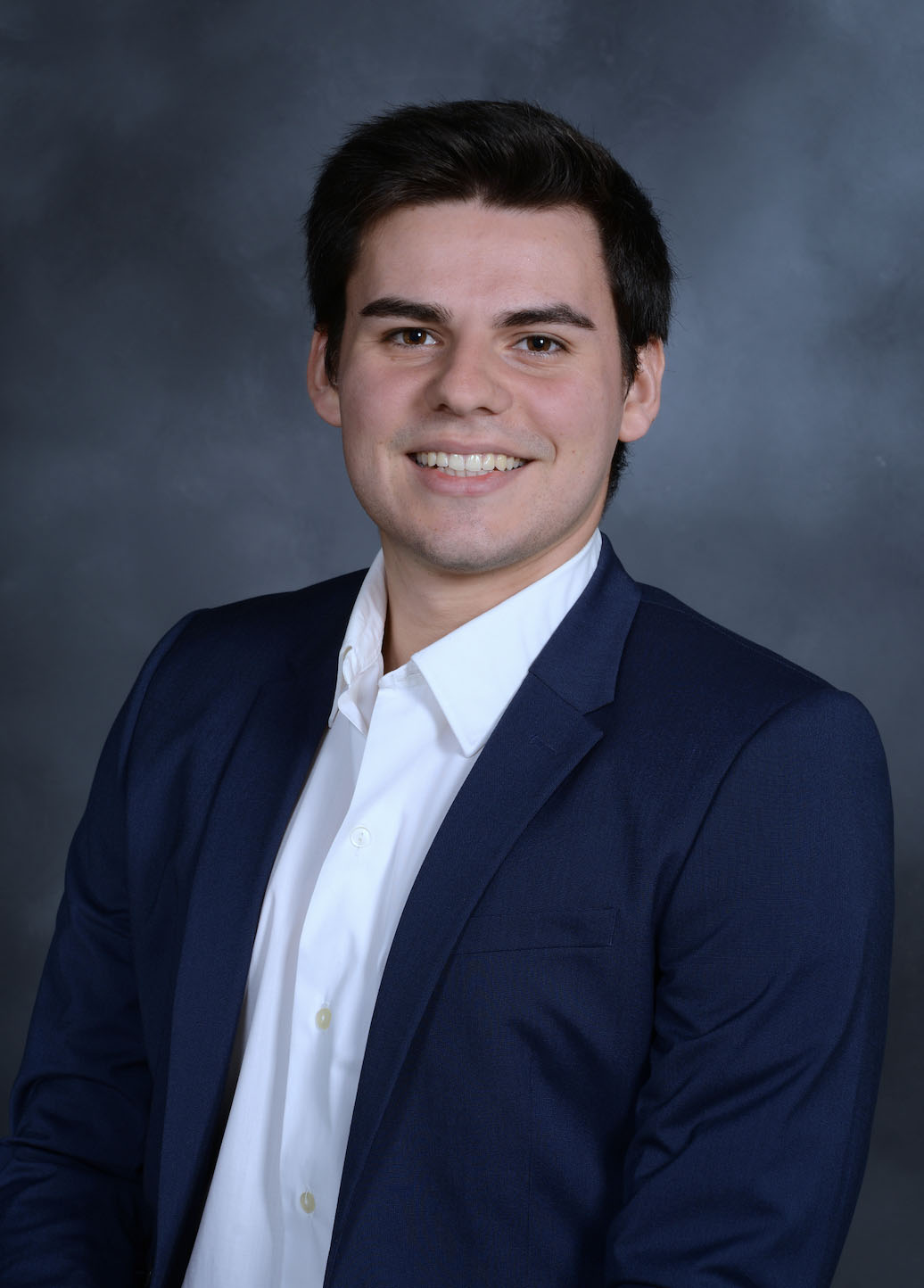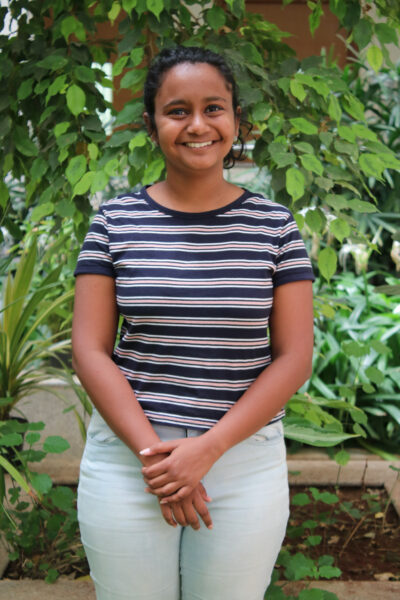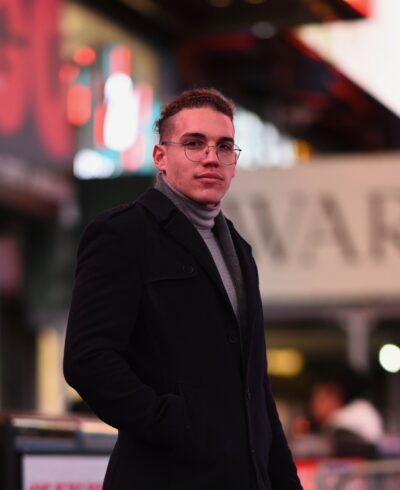Training with the NCDIR
Our Center represents an important resource of instrumentation, software, methods, and expertise that we have developed and optimized. The overarching goal of the NCDIR is to enable the widest range of researchers in the biomedical community to access our interactomics pipeline resource, and to transfer the pipeline technology to researchers’ laboratories. One major method to achieve this goal is to create a body of researchers from a wide diversity of fields who are trained in the use of NCDIR technology. These researchers will, in turn, act as nuclei to seed further spreading of our approaches in the community.
Our Center places great value in scientists training scientists and this training provides direct scientist-to-scientist training for trainees who want to learn and/or apply a tool (method, technology) to their own science. The NCDIR visiting scientist program trains scientists who desire to apply NCDIR science or technology directly to their research. Initially, to ensure quality control and standard operating procedures, this hands-on training occurs at one of the Center locations (Rockefeller University, UCSF, or Center for Infectious Diseases Research). Once the scientist is trained (i.e., knowledge transfer of NCDIR science or technology), NCDIR scientists continue to interact with the scientist remotely, or through additional direct interactions and further technology advancement at an NCDIR site or at the scientist’s home institution/lab. Thus, our cross-institutional training is one of the ways in which the expertise gained through the NCDIR is transferred to the community. Furthermore, providing training also has the added benefit of encouraging scientists to learn new techniques in a collaborative learning environment. The scientists in the Driving Biomedical Projects (DBPs) and Collaborations and Service Projects (C&SPs) also provide hands-on training for other scientists.
Since 2018 our labs have provided direct hands-on training to 93 investigators/students, including 75 scientists from 7 states in the US and 18 scientists from 5 foreign countries; representing a highly active and successful outreach of the Center through user training. The NCDIR currently has over 60 active collaborations from over 40 institutions. If you are a scientist seeking in-depth training, typically we ask that you seek to collaborate with one of our scientists, and then visit one of the labs on a longer-term basis (i.e. several months). The role of the Center in our collaborators’ work is acknowledged through listing the P41 (P41 GM109824/GM/NIGMS NIH HHS/United States) as grant support in their publications or acknowledge the fact that they got help for the NCDIR funded by the P41 grant.
Visiting scientist and reciprocal training program. Generally, to set up training with the NCDIR, community scientists contact a NCDIR scientist (including the PIs) at the institution where the training should best occur. Alternatively, NCDIR personnel reach out to scientists to inform them of the potential contributions NCDIR can make to a project. The training provided is based on the scientific challenge at-hand, and the current status of the NCDIR method or technology. Hands-on direct contact training will occur at one of the Center institutions to ensure quality control and standard operating procedures are followed. Fully equipped benches and adjacent workstations are dedicated and made available for NCDIR visiting scientists; surrounded by the interactomics equipment (cryomilling stations, 96-well solution handling and screening equipment, HPLCs and FPLCs, mass spectrometers, and computer workstations) needed to complete the training, as well as on-hand NCDIR members with the appropriate expertise. Thus, the NCDIR visiting researcher has everything they need within a few paces of their bench for being trained on taking their samples from frozen cells to multiple analytic stages. Once the research, technology, method, or software is proven to be robust within the Center, NCDIR scientists can then visit the trainee’s lab to train these scientists at their home institutions. In this way NCDIR scientists are able to provide hands-on training to teach trainees to directly apply our methods, technologies, and/or modeling to their own research.
The NCDIR Fellows Program. We have developed a Fellows program to provide trainees within the NCDIR the opportunity to receive hands-on training in a specific research, technology, method or computational tool to help further their own research. We have leveraged the framework of the Fellows program from within the NCDIR to trainees in the greater biomedical community. Our current and previous Fellows are listed below.
If you are interested in collaborating with one of our researchers, visit our About Us page to contact the four PI’s directly or contact admin@NCDIR.org!
Training with the NCDIR can also be done virtually via our video links which can be accessed here.
5 mins with visiting trainee Nicholas Carbone

- What is your position at your institution? I am currently a first-year graduate student in the Tri-Institutional Ph.D. Program in Chemical Biology, a program at the interface of Memorial Sloan Kettering Cancer Center, Weill Cornell Medical College, and The Rockefeller University. Prior to graduate school, I obtained my Bachelor of Science in Biochemistry with a Minor in Computer Science from Florida State University. My family is from Spain, and I was raised in Miami, Florida.
- What are your research interests? My primary research interests are in exploring/developing new and exciting targeted cancer therapies. I am particularly interested in exploiting the ability of nanobodies to bind in unique pockets and conformations, expanding the readily available space for the design of novel therapeutics. I am also interested in understanding the genetics of cancer and specifically alterations that define cancer genomes, creating avenues for targeted approaches and synthetic lethal interactions. In the Rout Lab with the NCDIR, I plan to investigate the non-LTR transposon long interspersed nuclear element-1, LINE-1. I am interested in how LINE1 can induce an immune response and the downstream signaling in response to LINE1 derepression.
What motivated you to rotate in an NCDIR Lab? I was motivated to pursue a rotation in Dr. Rout’s lab because of his work at the forefront of the nanobody field. His research leveraging this new technology with its applications to cancer and other diseases is a perfect fit for my interests. In addition, the collaborative nature of his lab and its insightful mentors are huge factors that drew me in and have contributed to making me feel welcome.
What do you hope to gain from your experience at NCDIR? In what ways do you think NCDIR is best equipped to help you achieve your specific goals? Through my experience in the Rout Lab, I hope to become immersed in the close-knit circle that is the NCDIR. I believe the NCDIR presents a unique opportunity to engage me in collaborative efforts regarding ongoing projects in the Rout Lab. Specifically regarding my interest in the nanobody projects, I am hoping to both learn from the breadth of expertise available in the NCDIR and contribute to these projects.
5 minutes with the NCDIR’s Lakshmi Sriram

What is your position at your institution and where are you from?
I’m a Research Assistant at the Rockefeller University and currently work on a joint project between the labs of Prof. Michael Rout and Prof. Frederick Cross. I was born in the U.S but spent most of my childhood in India, which is also where I attended university. I obtained BS and MS degrees in Biology from the Indian Institute of Science Education and Research, Pune. My Master’s thesis was on the Characterization of Methylation-dependent Restriction Enzymes.
What are your research interests?
My primary interest lies in the fields of Microbiology and Molecular Biology. I love the idea of working on projects that have downstream applications in clinical research or therapeutics. I’m currently working on a project that aims to search for single-chain antibodies that show broad cross-reactivity against viruses in the Cornovirus family. Using yeast as our system, we are attempting to generate libraries of yeast that display these single-chain antibodies on their surface. Such libraries can then be used to test the specifity of binding of the antibodies to various viral antigens.
What motivated you to work with us? What do you hope to gain from your experience at NCDIR?
Post obtaining my MS, I decided to look for positions where I could develop my skills as a researcher before moving on to do a PhD. My time with the Rout lab so far has been amazing, and I’ve learned a lot within a short period. Working directly on the bench with Dr. Rout, who has decades of experience, has been a highlight of my time here.
5 minutes with visiting trainee Marko Radovic

What is your position at your institution and where are you from?
I come from Serbia, where I received my BSc degree in Molecular Biology and Physiology from the University of Belgrade. Following the completion of my undergraduate studies, I relocated to the Netherlands, where I was awarded a full scholarship for the Master’s in Molecular Medicine and Innovative Treatment at the University of Groningen. Alongside my academic pursuits, I had the opportunity to join the Rout Lab at The Rockefeller University during my second-year research project of my Master’s studies. My stay at the Rout Lab was extended past my Master’s studies as a Foreign Research Intern and I have held this position while preparing for my upcoming PhD program in the Netherlands, which has received support through a fellowship granted by the University of Groningen.
What are your research interests?
Currently my research at the Rout Lab revolves around LINE-1 retrotransposons and their implications in inflammation and age-related diseases. I employ techniques such as affinity capture, mass spectrometry, and other biochemical methods to explore how LINE-1 encoded proteins contribute to the generation of immunogenic nucleic acids and their role in propagating inflammation and driving disease progression. Beyond my work on LINE-1 at the Rout Lab, my research in the Netherlands is dedicated to investigating mitochondrial dysfunction and its downstream effects in various diseases, including neurodegenerative conditions like Alzheimer’s, as well as cardiovascular disorders. My overarching interest lies in replicating and understanding complex interactions present during stress conditions which are common to many diseases, as I believe this understanding holds the potential to drive innovative therapeutic advancements.
What motivated you to collaborate/work with us? What do you hope to gain from your experience at NCDIR?
I saw this as a remarkable opportunity for professional growth and collaborative research. As someone with a strong interest in exploring the intricate mechanisms of biomolecular interactions, my primary goal is to expand my technical skill set and broaden my expertise so that I can apply it to other topics of interest. In addition, working at The Rockefeller University is a great chance to meet experts from various fields and experience the research landscape of the United States. Moreover, I hope to expand my network and establish scientific collaborations for the projects I am involved in now and my own future research.
